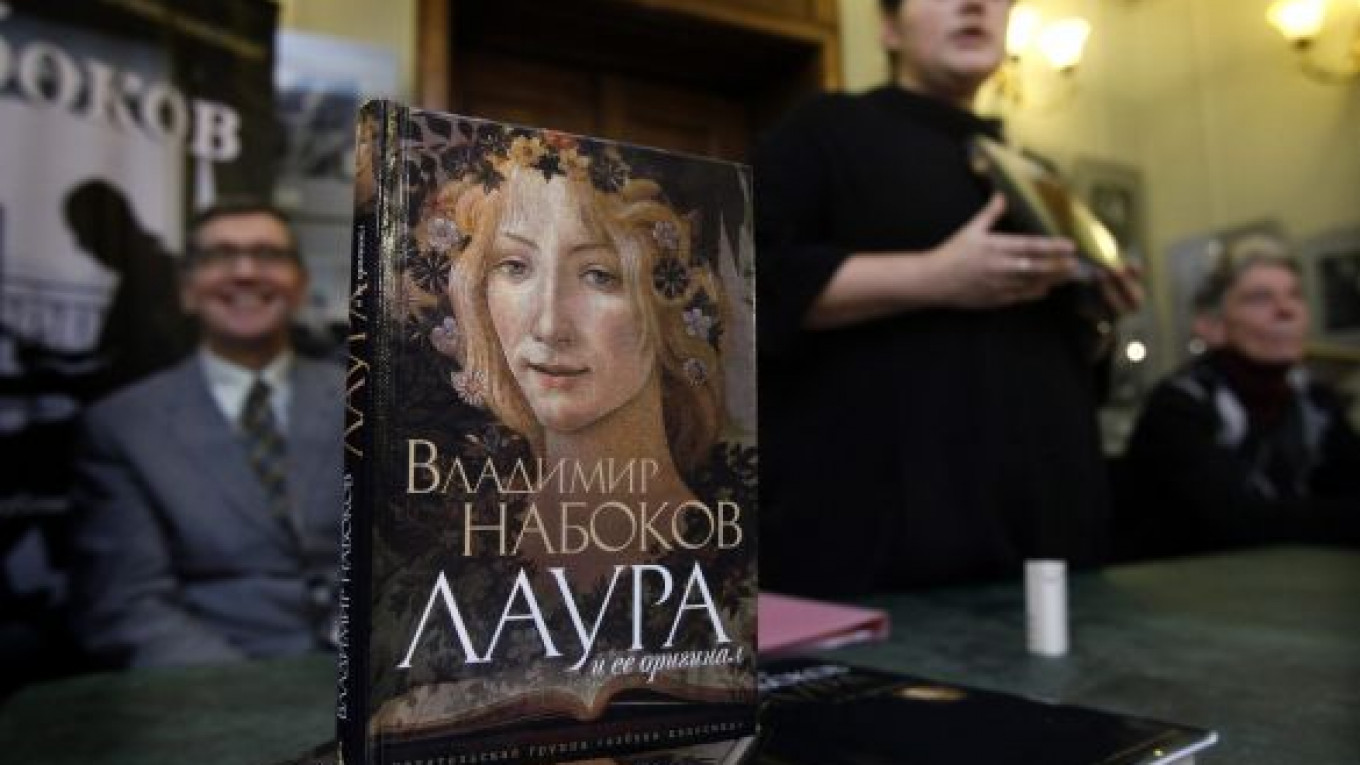ST. PETERSBURG, Russia — Vladimir Nabokov’s final, fragmentary novel went on sale Monday in two versions in Russia, more than 30 years after he asked that it be burned upon his death.
The emigre Russian wrote “The Original of Laura” on index cards from 1975 to 1977, the last years of his life.
He asked his wife and son to burn the cards after his death, said Tatyana Ponomaryova, director of the Nabokov museum in St. Petersburg, where the versions were presented on Monday.
One contains reproductions of the English-language index cards. The other, in Russian, puts the words into conventional text form.
His son Dmitry, who decided to publish the work, wrote in the preface that his father wouldn’t have been against the move.
The fragmentary book may be frustrating to many readers accustomed to the polished writing of Nabokov, whose novels, including “Lolita” and “Pale Fire,” are regarded as some of the best English prose ever written. But scholars at the presentation found it intriguing.
“Now we have a unique opportunity to play Nabokov as a Rubik’s Cube. That is, we can try to decide ourselves how the plot should go,” said Valery Timofeyev, a Nabokov expert at St. Petersburg State University.
“In fact, we now have a sample of the author’s laboratory, where all the stages of the writer’s work can be seen. It is great material for teaching philology students, too.”
“Today, when every word of Nabokov is worth its weight in gold, this book is like finding a treasure,” Russian writer Sergei Kibalnik said.
The book was published in the West in early November, and reviewers took note of its postmodernist conceits, in which the narrator tells of an affair with a young woman that later became the basis for a best-seller purportedly written by him.
“It’s not a novel. It’s a plot of a plot. But it is very interesting from that point of view,” said Boris Averin, a Russian literature historian at St. Petersburg State University.
The decision by Dmitry Nabokov to publish the book against his father’s wishes was controversial in literary circles, with many opposing the move.
“However, it’s understandable that it was very hard for Dmitry to burn something written by the hand of his father. And I’m personally very glad that Nabokov’s son still decided to publish his father’s work. He did it now also because of his elderly age of 75,” Ponomaryova said.
Nabokov and his family fled the chaos of the Russian Civil War, and he lived in Europe until moving to the United States in 1940.
He became an American citizen in 1945 but returned to Europe in 1961 after the great success of “Lolita,” settling in Montreux, Switzerland, where he died.
A Message from The Moscow Times:
Dear readers,
We are facing unprecedented challenges. Russia's Prosecutor General's Office has designated The Moscow Times as an "undesirable" organization, criminalizing our work and putting our staff at risk of prosecution. This follows our earlier unjust labeling as a "foreign agent."
These actions are direct attempts to silence independent journalism in Russia. The authorities claim our work "discredits the decisions of the Russian leadership." We see things differently: we strive to provide accurate, unbiased reporting on Russia.
We, the journalists of The Moscow Times, refuse to be silenced. But to continue our work, we need your help.
Your support, no matter how small, makes a world of difference. If you can, please support us monthly starting from just $2. It's quick to set up, and every contribution makes a significant impact.
By supporting The Moscow Times, you're defending open, independent journalism in the face of repression. Thank you for standing with us.
Remind me later.


